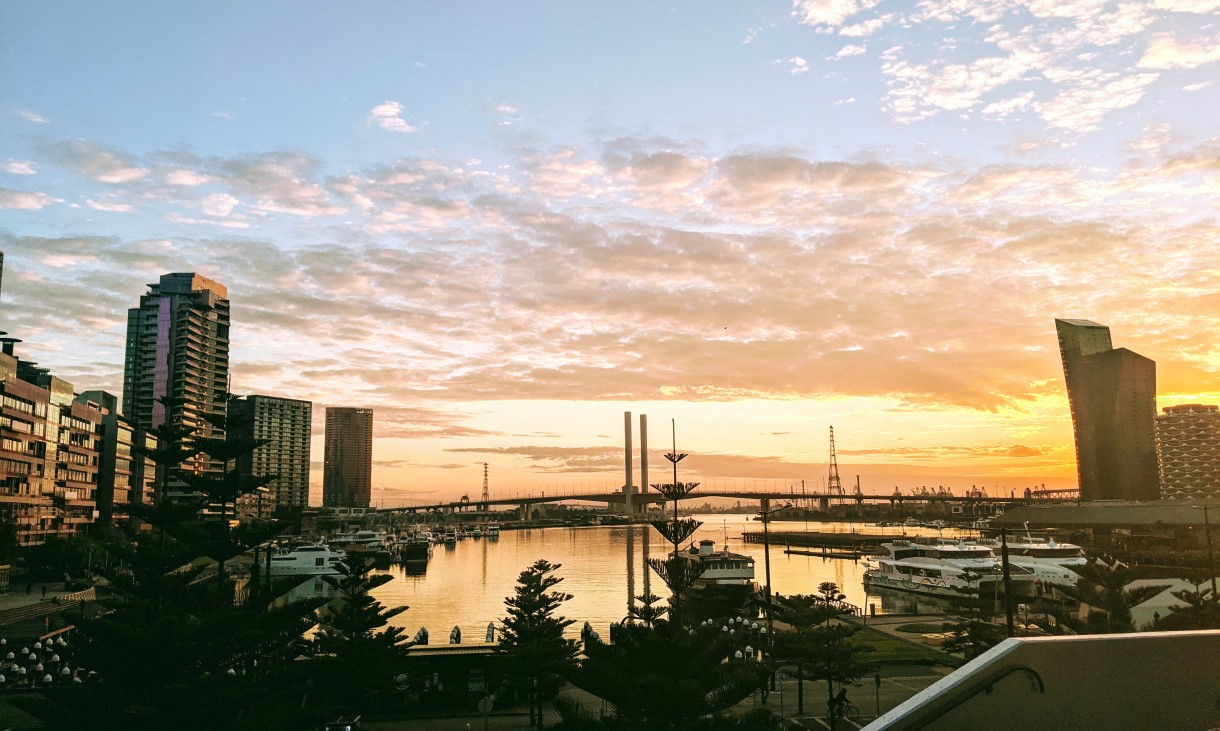Image: Melbourne Docklands
The Solution: a Proposed Pilot.
A staged regenerative strategy is proposed targeting specific regions and precincts such as the Docklands or CBD North, as a pilot aimed at helping the businesses that need data to survive and thrive. This will encourage the office workers and floating CBD populations to once again return to the CBD.
In Stage 1, this report proposed a pilot for CBD people flow and other data collections. The goal is to assist SMEs with their economic forecasting and inventory. This pilot will help forecast working capital for businesses, by observing changing labour markets.
In addition, it is hoped that the proposals will help stakeholders to understand property rental and ownership dynamics. In turn, the proposed pilot seeks to assist in creating a rental market with clearer working capital predictive models for retail, commercial and office tenants and landlords.
With a return to hybrid models of work - which may result in large fluctuations in people flow, and as people return to new patterns of weekly work, this will help provide some predictability in forecasting for a designated pilot region.
In Stage 2, that data will then be utilised by the Decentralised Autonomous Organisation (DAO). Retail/residential/commercial tenants could then take responsibility for their local environment: by creating a pilot Management Commons DAO utilising crucial pooled data to optimise resource allocation, increase efficiency, and create opportunities for strategic placemaking.
We proposed creating a DAO as a tool for:
1. Targeted economic stimulus
2. Community governance
3. Community engagement
The DAO is a non-hierarchical organisation designed to rejuvenate a pilot precinct for all stakeholders. It will be a DAO “data trust” designed to benefit all stakeholders. The DAO is thus the gatekeeper of all collected data that is to be used for the benefit of the DAO members and stakeholders. The concept of a DAO and the proposed operation of the pilot DAO is explained in depth in this forthcoming report.
A DAO could also assist future Melbourne City Council and State Government Docklands Dollars or Melbourne Money stimulus initiatives. But in reality it is a step further than a stimulus package in that it is looking to forecast long-term economic progress.
It is also proposed that there could be a “DAO digital currency” (easily convertible to Australian dollars). Corporate tenant partners (say for example resident developers or the state government), could support an airdrop of tokens to support the DAO’s membership intake and policies decisions.
DAO data trusts make Smart Cities 2.0 a viable policy option.
The full report can be found here.
See this article also for more information.
Author:
Dr Max Parasol is a member of the Blockchain Innovation Hub and is a Fellow on the Digital CBD Project.








